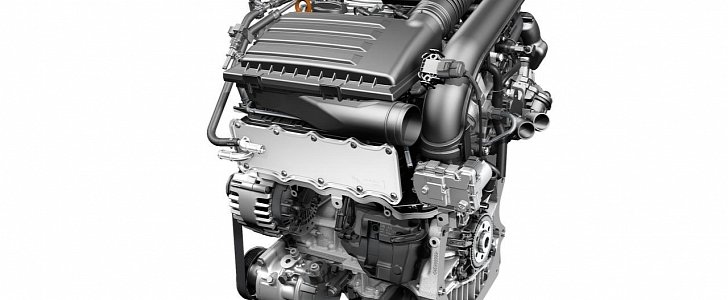During the internal investigation Volkswagen carried out after the EPA hit them with a notice of violation (NOV), the company discovered a second major issue. It affects an additional 800,000 cars, although the number could get much higher over time. The problem is described as "CO2 irregularities," although it's pretty clear that the levels are way too high.
An initial assessment suggests fixing this problem could cost the German automaker $2.2 billion or €2 billion. That could basically nullify all profits across the entire group for about three months.
During the investigation conducted into several diesel engines, "it was established that the CO2 levels and thus the fuel consumption figures for some models were set too low during the CO2 certification process."
The majority are diesels, says Volkswagen, but not all of them. Simply put, 800,000 engines built by Volkswagen Group drink too much fuel and thus emit more CO2 than they're supposed to. However, the German company won't disclose what these engines are and where they are located. As you may have realized, the European Union and the US have slightly different takes on the subject of pollution.
Some reports emerging this morning suggest most of the cars affected are relatively big ones fitted with 1.6 or 2-liter TDI engines. However, the 1.4-liter with Active Cylinder Timing is also affected. This is the first time a TSI engine has been connected in some way to the Dieselgate scandal. From here, the implications could spread across the industry, as independent tests have shown cars from companies like Mercedes, Renault and BMW consume over 50% more fuel than claimed.
The engine is also found in the VW Golf, Polo BlueGT and sister cars from SEAT. The technology is also part of the powertrain on the Golf GTE plug-in hybrid. All 4-liter V8 engines offered by Audi also have it, so there could be a really weird recall in the RS6's future.
"The Board of Management of Volkswagen AG deeply regrets this situation and wishes to underscore its determination to systematically continue along the present path of clarification and transparency," CEO Matthias Müller said in the announcement.
During the investigation conducted into several diesel engines, "it was established that the CO2 levels and thus the fuel consumption figures for some models were set too low during the CO2 certification process."
The majority are diesels, says Volkswagen, but not all of them. Simply put, 800,000 engines built by Volkswagen Group drink too much fuel and thus emit more CO2 than they're supposed to. However, the German company won't disclose what these engines are and where they are located. As you may have realized, the European Union and the US have slightly different takes on the subject of pollution.
Some reports emerging this morning suggest most of the cars affected are relatively big ones fitted with 1.6 or 2-liter TDI engines. However, the 1.4-liter with Active Cylinder Timing is also affected. This is the first time a TSI engine has been connected in some way to the Dieselgate scandal. From here, the implications could spread across the industry, as independent tests have shown cars from companies like Mercedes, Renault and BMW consume over 50% more fuel than claimed.
Is cylinder deactivation overrated?
One quick look at the model lineup of Volkswagen and Audi reveals the 1.4 TSI could indeed be affected. For example, the Audi A3 hatchback equipped with this mill puts out 112 grams of CO2 per kilometer, while a 1.2-liter TSI with 0.2 less displacement and 40 less horsepower produces 117 grams.The engine is also found in the VW Golf, Polo BlueGT and sister cars from SEAT. The technology is also part of the powertrain on the Golf GTE plug-in hybrid. All 4-liter V8 engines offered by Audi also have it, so there could be a really weird recall in the RS6's future.
"The Board of Management of Volkswagen AG deeply regrets this situation and wishes to underscore its determination to systematically continue along the present path of clarification and transparency," CEO Matthias Müller said in the announcement.

